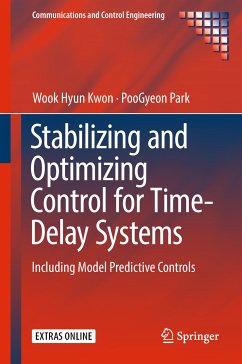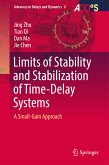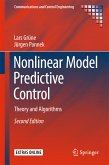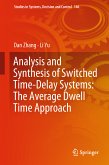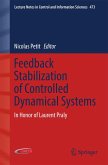Receding-horizon, or model predictive, linear quadratic (LQ), linear-quadratic-Gaussian and H8 controls for time-delay systems are chosen as optimal stabilizing controls. Cost monotonicity is investigated in order to guarantee the asymptotic stability of closed-loop systems operating with such controls.
The authors use guaranteed LQ and H8 controls as representative sub-optimal methods; these are obtained with pre-determined control structures and certain upper bounds of performance criteria. Non-optimal stabilizing controls are obtained with predetermined control structures but with no performance criteria. Recently developed inequalities are exploited to obtain less conservative results.
To facilitate computation, the authors use linear matrix inequalities to represent gain matrices for non-optimal and sub-optimal stabilizing controls, and all the initial conditions of coupled differential Riccati equations of optimal stabilizing controls. Numerical examples are provided with MATLAB® codes (downloadable from http://extras.springer.com/) to give readers guidance in working with more difficult optimal and suboptimal controls.
Academic researchers studying control of a variety of real processes in chemistry, biology, transportation, digital communication networks and mechanical systems that are subject to time delays will find the results presented in Stabilizing and Optimizing Control for Time-Delay Systems to be helpfulin their work. Practitioners working in related sectors of industry will also find this book to be of use in developing real-world control systems for the many time-delayed processes they encounter.
Dieser Download kann aus rechtlichen Gründen nur mit Rechnungsadresse in A, B, BG, CY, CZ, D, DK, EW, E, FIN, F, GR, HR, H, IRL, I, LT, L, LR, M, NL, PL, P, R, S, SLO, SK ausgeliefert werden.
Hinweis: Dieser Artikel kann nur an eine deutsche Lieferadresse ausgeliefert werden.

